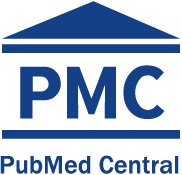Training the new generation of students in global health at a peruvian university
DOI:
https://doi.org/10.17843/rpmesp.2008.253.1275Keywords:
Global health, Education, Public health professional, Medical education, ResearchAbstract
In July 2007, the Global Health Program in Peru (www.globalhealthperu.org) at Universidad Peruana Cayetano Heredia (UPCH) organized a course entitled “Basic concepts in Global Health” for undergraduate students at UPCH and foreign students. Objective. Report the evaluation of the course. Material and methods. We measured the participants’ knowledge by a pre- and post-test. An end-of-course evaluation was also applied. Finally, a nine-month follow-up evaluation survey was conducted. Results. Twenty-four participants were enrolled in the course. Of 30 questions, the mean % score increased from 45.6 pre test (SD = 8.37) to 68.8 (SD = 14.46) for the post test (P < 0.0001, n = 24). At the end-of-course evaluation, most of the comments (54%) about the course were positive. The main perceived strength of the course was the relevance and the innovation of the topics (31%), and the quality of the speakers (25%). The main perceived weakness was the short time for some presentations (42%) and that some professors/topics were difficult to understand (18%). 92% ranked the course as very good/excellent (22/24), 100% evaluated the utility of the course as useful/very useful. 88% (21/24) would recommend this course to other students. At the nine-month follow-up survey, 88% (15/17) of students put in practice what they learnt during the course. Conclusions. The course increased knowledge of participants and their comments towards the course were positive. The course “Basic concepts in global health” could be a model for other national or international undergraduate training programs.Downloads
Download data is not yet available.
Downloads
Published
2008-09-30
Issue
Section
Research Articles
How to Cite
1.
Curioso WH, Lazo-Escalante M, Gotuzzo E, García HH, Gilman RH, García PJ. Training the new generation of students in global health at a peruvian university. Rev Peru Med Exp Salud Publica [Internet]. 2008 Sep. 30 [cited 2025 Jul. 22];25(3). Available from: https://rpmesp.ins.gob.pe/index.php/rpmesp/article/view/1275





























